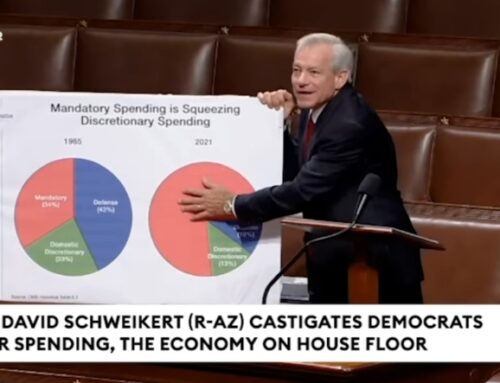History doesn’t repeat, but it sure as heck rhymes. That’s why some of us are troubled by the parallels between our current fiscal situation and the response by various levels of government to the West’s most memorable brush with severe financial turbulence since the 1930’s.
We have too much debt; by that, I mean personal debt, corporate debt, and government debt. Way too much debt; in fact, more debt than we can ever pay off. And now that people have lost jobs and tax revenues are shrinking, we can’t even make the payments and maintain our current lifestyles. Something’s got to give.
The choices are stark. So stark, in fact, that choosing is being avoided altogether. Instead, the “solutions” merely require 1) in-your-face cheating on a massive scale, or 2) literally, choosing to not choose. It’s so overt it’s like they’re daring us to do something about it, by telling us in very plain language that they don’t care what we think.
1. Alan Greenspan, in a paradoxical moment of apparent clarity, made this shockingly plain statement in a recent Wall Street Journal op-ed:
The U.S. government can create dollars at will to meet any obligation, and it will doubtless continue to do so. U.S. Treasurys are thus free of credit risk.
That statement is eerily familiar; in a now-famous piece from 2002, Our Hero Ben Bernanke (not yet Fed Chairman) famously revealed Fed company policy:
Like gold, U.S. dollars have value only to the extent that they are strictly limited in supply. But the U.S. government has a technology, called a printing press (or, today, its electronic equivalent), that allows it to produce as many U.S. dollars as it wishes at essentially no cost. By increasing the number of U.S. dollars in circulation, or even by credibly threatening to do so, the U.S. government can also reduce the value of a dollar in terms of goods and services, which is equivalent to raising the prices in dollars of those goods and services. We conclude that, under a paper-money system, a determined government can always generate higher spending and hence positive inflation. [emphasis added]
Now, I don’t know about you, but I don’t feel like having the value of my dollars reduced by Ben’s producing “as many dollars as [he] wishes at essentially no cost.” After all, when the value of my dollars is reduced, I have to pay more of them to buy the things I need. More importantly, the value of my life savings is reduced as well, just as certainly as if someone had stolen it from me. So, inflation is theft, and people who deliberately cause inflation are thieves. But you knew that. Theft is theft, whether it is done by someone who works for the government and wears a suit, or by someone who wears a mask and pushes a gun in your face.
Does the Federal Reserve care what you think? I doubt it:
http://www.youtube.com/watch?v=pVmxQsvj6lo&feature=player_embedded
2. Unlike the Feds, states can’t print money, so a different kind of cheating is required. Governor McDonnell recently proclaimed that everything is hunky-dory in Virginia, and state employees can count on a bonus this year. According to Tom White or the Richmond T-D it’s because the state is demanding 13 months of sales tax revenue this fiscal year. The budget was balanced by extending the fiscal year, but only on the revenue side. That’s right, we get 13 months of revenue to cover 12 months of spending. Voila! The budget magically balances! Fiscal propriety ensues! Virginia demanded some retail businesses pay 13th-month state sales taxes to the state before it is even paid by their customers, in effect forcing them to make a loan to the state. What happens next year? Who cares! The state will have spent the loot by then, the 2010 elections will be history, and the freight train of truth will have been dodged for another election cycle. Hmmmm…an accounting gimmick results in bonuses for employees! How original!
3. This just in from The Hill! House Democrats use precedent handed to them on a silver platter by Republicans, and decide to not decide!
Dems won’t pass budget in 2010
By Jared Allen – 06/22/10 12:01 AM ETHouse Democrats will not pass a budget blueprint in 2010, Majority Leader Steny Hoyer (D-Md.) will confirm in a speech on Tuesday.
“It isn’t possible to debate and pass a realistic, long-term budget until we’ve considered the bipartisan commission’s deficit-reduction plan, which is expected in December,” according to Hoyer’s prepared remarks that were provided to The Hill.
The House will put forth a “budget enforcement resolution” rather than a budget blueprint that looks beyond next year and calculates five or 10 years’ worth of deficit figures [emphasis added].
In other words, the Dems are going to postpone any actual fiscal decision-making AND hide the long-term deficit implications until after the 2010 mid-term elections! Wow, I’m shocked!
Dear voters: this is what you get. Rather than actually cutting spending to sustainable levels, our “leaders” cheat, steal, postpone, and proclaim victory. What a crock.





